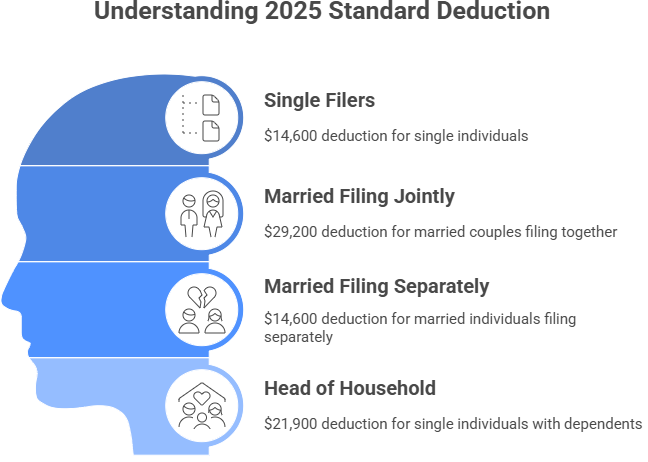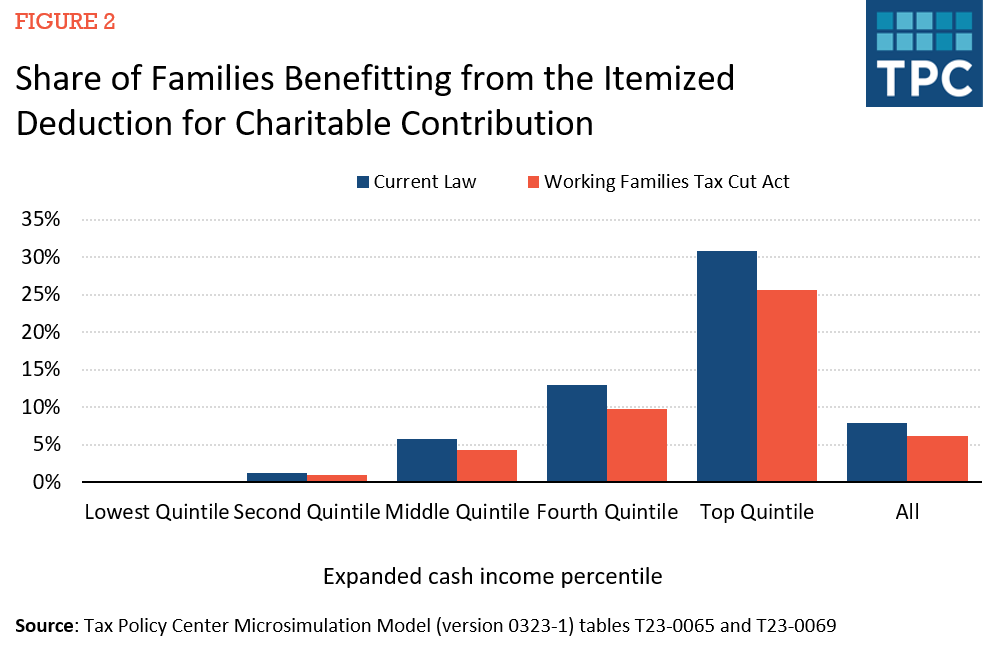How to maximize your tax benefits with the FEIE Standard Deduction
Wiki Article
Recognizing the Foreign Earned Revenue Exemption and Its Effect On Your Standard Deduction
The Foreign Earned Revenue Exemption (FEIE) supplies significant advantages for expatriates, allowing them to exclude a portion of their foreign-earned earnings from united state taxes. Nevertheless, declaring the FEIE can complicate one's tax circumstance, specifically concerning the typical reduction. Understanding this interaction is important for individuals living abroad. As expatriates navigate these intricacies, they need to take into consideration just how their choices affect their total tax obligation liability. What methods can they employ to enhance their economic results?What Is the Foreign Earned Revenue Exemption (FEIE)?
The Foreign Earned Revenue Exemption (FEIE) acts as an essential tax obligation advantage for united state people and resident aliens working abroad. This arrangement permits qualified individuals to omit a considerable portion of their foreign-earned income from U.S. taxation, successfully minimizing their total tax burden. The FEIE intends to relieve the financial pressure on migrants and encourages Americans to go after work opportunities in foreign markets. The exemption relates to incomes, incomes, and specialist fees earned while staying in a foreign country. The optimal exemption quantity is changed every year for inflation, guaranteeing that it continues to be pertinent to present economic conditions. By utilizing the FEIE, expatriates can retain even more of their income, fostering economic stability while living overseas. Overall, the FEIE plays a crucial function fit the monetary landscape for Americans abroad, helping with a smoother change to worldwide workplace and promoting financial involvement on a global range.Eligibility Requirements for the FEIE
Qualification for the Foreign Earned Income Exemption (FEIE) is contingent upon conference certain requirements established by the Irs (IRS) Largely, individuals have to be united state residents or resident aliens that earn earnings while living in a foreign country. To certify, they must please a couple of primary examinations: the Physical Existence Test or the Authentic House Test.The Physical Visibility Test needs people to be physically present in a foreign nation for a minimum of 330 complete days within a 12-month duration - FEIE Standard Deduction. Alternatively, the Bona Fide Home Examination demands that individuals develop residency in an international country for an undisturbed period that includes an entire tax year
Additionally, the income needs to be originated from individual solutions performed in the foreign country. Satisfying these needs permits taxpayers to leave out a substantial portion of their foreign-earned earnings from U.S. taxation, thus lowering their total tax obligation obligation.
Just how to Assert the FEIE

To start the process, people should gather documents that verify their international incomes, such as pay stubs, tax returns from foreign nations, and any type of pertinent employment agreements. It is important to ensure all revenue declared under the FEIE is gained from foreign sources and satisfies the required thresholds.
In addition, taxpayers should consider filing due dates and any kind of possible extensions. Asserting the FEIE appropriately not only helps in minimizing tax liability however additionally guarantees conformity with IRS regulations. Appropriate paperwork and adherence to standards are essential for a successful case of the Foreign Earned Revenue Exemption.
The Communication Between FEIE and Common Reduction
The communication in between the Foreign Earned Income Exclusion (FEIE) and the basic deduction is an essential element of tax planning for expatriates. Comprehending the standard concepts of FEIE, together with the constraints of the conventional deduction, can considerably affect tax filing approaches. This area will explore these elements and their implications for taxpayers living abroad.FEIE Fundamentals Discussed
While lots of expatriates look for to lower their tax obligation concern, comprehending the communication between the Foreign Earned Income Exemption (FEIE) and the standard deduction is vital. The FEIE enables U.S. residents and resident aliens living abroad to omit a certain quantity of international made income from united state taxes. This exemption can greatly decrease gross income, potentially affecting qualification for other deductions, such as the basic deduction. Incredibly, individuals that assert the FEIE can not additionally take the common reduction against the excluded earnings. Therefore, expatriates have to meticulously assess their complete earnings and deductions to enhance their tax circumstance. Understanding of these interactions can cause more educated financial decisions and much better tax obligation methods for migrants steering via their unique circumstances.Criterion Deduction Limitations
Recognizing the limitations of the basic reduction in connection with the Foreign Earned Revenue Exemption (FEIE) is important for expatriates maneuvering their tax responsibilities. While the FEIE permits certifying individuals to exclude a specific quantity of foreign-earned revenue from U.S. taxes, it can impact the typical reduction they are eligible to case. Specifically, taxpayers who assert the FEIE can not also claim the basic deduction on that left out income. my explanation Additionally, if a migrant's complete revenue drops below the typical deduction threshold, they may not take advantage of it whatsoever. This interaction demands careful planning to enhance tax obligation advantages, as underutilizing the conventional deduction can result in higher gross income and boosted tax responsibility. Understanding these restrictions is essential for effective tax strategy.Tax Declaring Implications
Navigating the tax declaring effects of the Foreign Earned Revenue Exemption (FEIE) needs mindful factor to consider of just how it engages with the typical deduction. Taxpayers utilizing the FEIE can leave out a significant part of their foreign-earned earnings, but this exemption affects their eligibility for the standard deduction. Specifically, if an individual claims the FEIE, they can not also assert the standard reduction for that revenue. This can cause a lower overall tax obligation responsibility however may make complex the declaring procedure. Additionally, taxpayers must guarantee compliance with internal revenue service demands when submitting Type 2555 for the FEIE. Comprehending these interactions is essential for enhancing tax obligation benefits while staying clear of potential challenges in the declaring process. Mindful planning can make best use of benefits and minimize responsibilities.Possible Tax Implications of Making Use Of the FEIE
The Foreign Earned Earnings Exemption (FEIE) provides considerable tax benefits for U.S. residents working abroad, yet it additionally features potential ramifications that necessitate cautious factor to consider. One major consequence is the effect on qualification for certain tax credit reports and reductions. By electing to make use of the FEIE, taxpayers might accidentally lower their adjusted gross income, which can limit access to debts like the Earned Earnings Tax Credit history or lower the amount of standard reduction available.
Additionally, people that utilize the FEIE may deal with complications when going back to the united state tax system, especially concerning the taxation of future revenue. The exclusion uses just to earned earnings, implying various other revenue kinds, such as returns or passion, stay taxed. This distinction requires careful record-keeping to ensure compliance. Finally, the FEIE might affect state tax obligation commitments, as some states do not identify the exclusion and may strain all revenue earned by their residents, no matter where it is earned.
Tips for Maximizing Your Tax Obligation Benefits While Abroad
While working abroad can be enhancing, it also provides special opportunities to enhance tax benefits. To take full advantage of these benefits, individuals should initially establish their eligibility for the Foreign Earned Revenue Exemption (FEIE) and think about the physical visibility test or the bona fide residence examination. Maintaining in-depth documents of all revenue gained and expenditures incurred while overseas is important. This paperwork sustains claims for credit scores and deductions.In addition, understanding the tax obligation treaties between the United States and the host country can assist prevent double tax. People need to also discover contributions to tax-advantaged accounts, such as IRAs, which might supply additional reductions.

Last but not least, speaking with a tax obligation specialist focusing on expatriate tax obligation regulation can offer customized techniques and warranty compliance with both united state and international tax responsibilities. By taking these actions, migrants can efficiently boost their economic scenario while living abroad.
Frequently Asked Inquiries
Can I Use FEIE if I Help a Foreign Government?
Yes, a person can check my reference make use of the Foreign Earned Revenue Exemption (FEIE) while functioning for an international government, given they satisfy the requisite problems described by the IRS, including the physical existence or authentic home examinations.
Does FEIE Put On Self-Employment Revenue?
The Foreign Earned Income Exclusion (FEIE) does relate to self-employment earnings, offered the individual satisfies the essential demands. Qualified Homepage independent people can leave out certifying revenue made while living in an international country from tax.What if My International Earnings Surpasses the FEIE Limitation?
If international income exceeds the FEIE limitation, the excess quantity might go through united state taxes. Taxpayers need to report and pay taxes on the revenue above the exemption limit while still gaining from the exclusion.Can I Assert the FEIE and Itemize Reductions?
Yes, people can assert the Foreign Earned Revenue Exemption (FEIE) while likewise itemizing deductions. However, they need to be aware that asserting the FEIE may affect the schedule of particular itemized deductions on their tax obligation return.Exactly How Does FEIE Affect My State Tax Commitments?
The Foreign Earned Earnings Exemption can lower state tax obligation responsibilities, as many states follow federal standards. Nevertheless, specific state policies vary, so it's important to speak with state tax regulations for specific implications on tax obligation responsibilities.The Foreign Earned Earnings Exclusion (FEIE) offers considerable advantages for expatriates, allowing them to omit a section of their foreign-earned earnings from U.S. taxation. While many migrants look for to minimize their tax obligation burden, understanding the interaction in between the Foreign Earned Revenue Exemption (FEIE) and the standard deduction is vital. Comprehending the restrictions of the typical reduction in connection to the Foreign Earned Income Exclusion (FEIE) is necessary for expatriates maneuvering their tax responsibilities. The exclusion applies just to made income, indicating various other revenue types, such as rewards or rate of interest, continue to be taxable. The Foreign Earned Income Exclusion (FEIE) does use to self-employment revenue, supplied the individual satisfies the required needs.
Report this wiki page